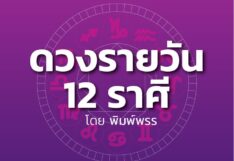PPP Law, 3-Airport High Speed Rail : COVID-19 as Force Majeure as US$7.5 Billion Project Awaits Foreign Stake to Expand from 10% By Wirot Poonsuwan
The Thais were incredibly confident to have taken 90% ownership in the US$ 7.5 billion 3-airport high-speed rail project, leaving a heavy-weight railway construction giant from China to hold a minority light-weight stake of 10%, while the concession contract allows a large room for foreign shareholders to grow to a super majority of 74% of the concessionaire company.
Of that 90%, one of the country’s largest commercial conglomerates shares 70%, and two of the nation’s top contractors were allocated the remaining 20%.
Four billion baht or US$125 million has already been fully invested in the form of an initial share capital. Further equity and debt financing is on the way.
Japan has expressed interest to join hands with China, a rare infrastructure collaboration between the two countries, to fund part of the project cost. It remains to be seen how the world’s number-three economic power will participate, as a private owner of the project or through the Thai government public participation of US$3.7 billion, roughly half the project value, payable over 10 years.
Will the project ownership composition change after the coronavirus pandemic? Will the transportation outreach stumble over the virus as a force majeure incident?
Project Not Deterred by COVID-19
Construction in Thailand is not very much affected by the coronavirus pandemic. Workers are widely seen working at construction sites, wearing face masks; night work may be cut for the curfew but by and large the site has not been shut down.
Duties by the state project owner to deliver the land is unlikely to be delayed by the outbreak as government offices are conveniently open and officials are not ordered to stay at home; public services are deemed sacrificial and essential.
Financial close nine months after the commencement of the 50-year concession is purportedly proceeding as planned, with slight anxiety on how banks would perform over a surge in lockdown bad debt.
The outbreak does not appear to have an effect on this long-term project.
Act of God Defined
Epidemics that no doubt include the virus are clearly defined and are definitive as a force majeure event, an act of god neither contractual party is to be held liable for.
It won’t be easy for either party to exploit the spread of the virus as a natural disaster that prevents the performance of any of its duty. The concession takes pains to go nearly 10 pages long to break down the process of claiming a force majeure incident.
Unlike the barber who is barred from doing his job, a Thai traditional masseuse who cannot touch his customer’s body, a pub that cannot sell a drink, a five-star hotel that is empty, or an airline that is forced to ground its fleet, it is a challenge to find a duty of the state project owner or of the concessionaire that is banned directly by the shelter-in-place measures.
Proof of Force Majeure
One stringent condition of the concession that the party who claims a force majeure event has to comply with is the description in the claim notice of how the epidemic impacts its performance of duty. The justification and a match of cause and effect have to be there.
The state owner must make sense to explain why the workers cannot work at the site to remove the utilities from the strip of land to be delivered when there is no explicit regulatory ban on the workers from doing so.
The concessionaire must substantiate its claim of not being able to talk to bank executives attributable to their work from home when the videoconferencing platforms are commonly prevalent everywhere in the age of the fast high-speed internet.
Mitigation Effort a Must
The most difficult task for the party who claims force majeure to contend with is the requirement of the concession for the claiming party to mitigate the impact: to prevent and cure it; to use other services or equipment; to try its best to continue its performance.
Has it provided its employees with masks, gloves, protective equipment, hand-sanitizing gel and testing for the virus? What about any social distancing and cleaning the surfaces with disinfectants? Does the party take precautions? Did it act early or play down the impact from the outset?
Roadblocks, one after another, have been created for the claiming party to overcome before it can achieve the success of claiming an act of god and win the agreement of the other party, who always is careful to be on the same page as a force majeure incident can finally end up with a severe consequence of termination of contract and the owner forced to buy the project at a certain price.
Obligation to Pay Never a Force Majeure
On the one hand, just like a legal understanding in general, the concession makes sure that the concessionaire’s obligation to make any payment under any project contract can never be classed as a force majeure.
On the other hand, please note however that there is no provision in the contract that bars the state project owner from citing an infectious disease outbreak as a force majeure that stops it from contributing half of the project fund. The issue is left to be argued on the matter of law.
Recruitment of insufficient labor as rural folks escape Bangkok for their cheaper-cost of living provincial farms at this hard time is also excluded from the definition of a force majeure.
Economic Instability as Relief Event
The worrisome part is not the epidemic itself as a force majeure event, but its consequences resulting in a macro-economic instability of Thai society. If the consumer price index jumps to an increase rate of nine percent per annum, if great foreign exchange fluctuations spark the concessionaire’s inability to pay foreign-currency debt, if the minimum loan rate leapfrogs to exceed 15 percent per annum and more, these scenarios will be formalized as relief events in the concession causing a worse catastrophe to the project than an act of god.
Wirot Poonsuwan is Senior Counsel and Head of Special Projects at Bangkok law firm Blumenthal Richter & Sumet and can be contacted at [email protected].










